By: Dawda Baldeh
The former President Yahya Jammeh who is currently on exile in Equatorial Guinea launched a nationwide witch hunt exercise between 2008 and 2009 which has resulted in forty-one (41) deaths while others who survived are still alive battling with a range of challenges. Years after the incident, it still continues to have a serious impact on the lives and livelihood of victims and their families.
Yaye Bojang, a resident of Jambanjelly Village and a mother of four children [three girls and a boy] who also survived the witch-hunting and is the breadwinner of her family, recalled her ordeal and described it as the darkest chapter of her life.
“I was humiliated. I have been a widow for years after I lost my husband to the witch hunt exercise. And because of my terrible financial situation, all my children have dropped out of school. As a poor widow, I cannot provide food for the family and pay school fees as well. We need support. Watching my children under the care of others is never my wish, but circumstances forced me to allow them to move and stay elsewhere.
Remembering the past and my current condition keeps me crying every day. Without support from people, we sometimes find it difficult to get food. Prices of rice and other food commodities are skyrocketing daily, making our sustenance more difficult,” she lamented.
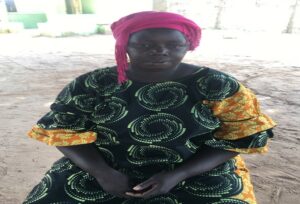
Bojang said her husband’s death left her in the dark, adding that things became more traumatizing when she also lost her son.
She expressed that her son was a source of hope and courage. “My son died a few years ago on a perilous journey to Europe. My father was the one supporting me after my husband’s death. Unfortunately, he has also died. I don’t get any support from the government.”
Another victim is Mariama Saidy, a 52-years-old widow and a resident of Jambanjelly village.
“I lost the strength to walk, and now I depend on my daughters for support. I was healthy, but now I keep visiting the hospital due to my health conditions. I don’t have someone to help, so my daughters dropped out of school.”
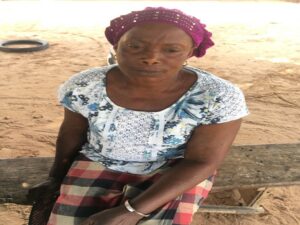
The 52-year-old widow is the breadwinner of her family of six children [four girls and two boys]. She said she is disappointed in the government for not providing them with their urgent needed supports.
“I don’t think we will get justice and supports because the white paper [TRRC report] has been out for months now, but we have not heard from the government since.
Seeing my children at home not going to school causes me more pain, because in this generation if you don’t have educated children, you will live a difficult life. I fear that we will not get justice, and this keeps me crying. Occasionally, my daughters keep calming me down whenever they see me cry.”
Ms Saidy urged people to provide any support, particularly for her children to continue their schooling.
Buba Sano and Ebrima Darboe are other survivors of the so-called witch hunting exercise. 40-year-old Buba Sano disclosed that he has undergone several operations and has lost the strength to work.
“I have become weak because of those operations. However, if I don’t go to work, my family will starve. I now suffer from a severe stomach pain which I fear will kill me if I don’t get the required medical treatment.
All these started showing up after the witch hunting exercise in which I was mistreated. I am advised not to engage in hard labor, but because I have no other means to earn a living, I am still taking the risk to provide for my family,” he narrated.
Darboe said he is owing people a lot of money which he borrowed and spent on his medications, but said he is however gratefully because those he owes understand his health condition hindering him from paying.
In tears, the old man confirmed that he has never gotten any support from the government.
Neneh Babou appears to be in her early 40s. She is a resident of Essau. She was pregnant at the time she experienced the witch-hunting exercise in 2009.
Babou revealed that she lost her baby three months after giving birth. “I lost my baby due to the severe torture I went through. I however gave birth, but three months later my baby died because I was sick and unable to breastfeed and take care of him. Since then, I have not given birth to any other child. I will never forgive Yahya Jammeh in this world and hereafter because he is behind the loss of my child who could have been benefiting me currently,” she cried out.
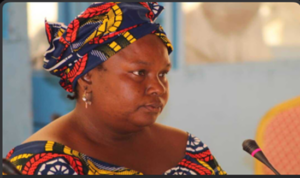
Neneh is still faced with the fear of not bearing children, confirming that she has not received any support from the government.
Lamin Darboe described the witch-hunting exercise as “politically motivated,” adding that they are suffering while awaiting justice. “I am gradually losing hope because of the delay in reparation and justice. There cannot be any development without justice.
It has been months since the TRRC ended, but still, we have not got justice or received any support from the government.
We are citizens who were accused of what we are not, and we encountered tortured, inhumane treatments and some even died in the process.
The government should ensure that the perpetrators face justice. I can forgive the past, but I can never forget the terrible things I went through,” he explained.
Getting close to survivors, hearing from them and observing their living condition, it is apt to emphasize that they and their dependents really need a range of urgent supports.
Background and nature of witch-hunting exercise
Following Gambia’s transition from a dictatorship to democracy in 2017, a Truth, Reconciliation and Reparation Commission (TRRC) was established to investigate the Yahya Jammeh regime from 1994 to 2017, a period believed to be a dark age for human rights in The Gambia.
Theme 12 of the TRRC report titled “President’s witch-hunting exercise” delves deep into the hunt for presumed “witches and wizards” in the country and atrocities committed therein.
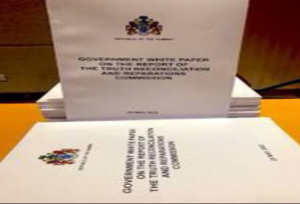
According to the report, “former President Jammeh launched a nationwide witch hunt between 2008 and 2009 where victims were unceremoniously identified as witches or wizards, forcefully detained by the ‘witch hunters’ and security personnel and later removed from the security and privacy of their offices, homes, and communities to unknown destinations.
The witch-hunting exercise was conducted in Kanilai, Sintet, Jambur, Essau, Barra, Mankumnaya, Galoya and was expanded to government institutions.
“The ‘witch-doctors’ believed to be from Guinea Conakry or Mali were escorted and assisted by members of the Gambia Armed Forces (GAF), members of the Police Intervention Unit (PIU), the paramilitary wing of the Police, conventional police officers in some villages and the Green Boys and Girls and some villages were accompanied by Alkalos, residents and APRC supporters.
The TRRC report, that former president Jammeh, launched the witch hunt after the death of his aunt which was attributed to witchcraft.
The exercise was carried out in nationwide resulting to the deaths of 41 individuals while many others fleet for their lives. The TRRC report revealed that the victims were forced to drink bitter or unpleasant herbal concoctions thought to be sourced from “Kubejera” and “Talo” a local hallucinogenic plant identified as toxic to the body.”
Some testimonies at the TRRC revealed that the witch hunt exercise was politically motivated. The TRRC report revealed that witch hunt exercises conducted at different villages and the victims included pregnant women, nursing mothers and children.
“Victims were forced to bathe in a repulsive herbal concoction whilst nude or semi-naked under humiliating and sexually abusive circumstances,” the report added.
The Commission found that at least one of the victims of the witch-hunting exercise was raped while other victims died or suffered from serious illnesses and other negative effects such as nausea, unconsciousness, hallucinations, intoxication, diarrhea and exhibiting strange behaviors following their release.
The report added that victims were, threatened, exposed to guns and ammunition, beaten, tortured, and subjected to inhuman and degrading conditions including the deprivation of food, medical, and attention.
During the process, several individuals were identified as witches and wizards including Yahya Darboe, Wuday Ceesay and Yusupha Saine and were assembled and required to drink and bathe in a witchcraft cleansing ritual or be dismissed.
“Many victims also lost their means of earning a living because they were no longer fit to work. They were forced to spend the little money they had on medical treatment, despite it failing to alleviate their suffering.”
The Commission found that Former President Jammeh, Solo Bojang, the security forces, witch hunters and Green Boys are all individually and collectively responsible for ordering the persecution, arbitrary arrest and detention, torture, inhumane and degrading and sexual gender-based violence treatment of hundreds of individuals, leading to about forty-one (41) deaths during the 2009 witch-hunting exercise.
The Commission found the former president responsible for the forced labor of various people in the Fonis and other areas in his home village, Kanilai.
The Commission also found the following individuals responsible for their role in the witch-hunts; Saihou Jallow for his unlawful assault and torture of lamin Ceesay and his role in witch hunts in Essau and Barra.
Ensa Badjie for his role in the Banjul, police force witch hunts. Omar Jawo a senior member of the police in the North Bank Region for his participation in the witch hunts including the unlawful arrest torture among others of Lamin Ceesay of many people which has led to the death of 40 people including others.
Tamsir Bah the OC of Sibanor Police Station in 2009 for the unlawful arrest and detention of Nyima Jarju, and her mother-in-law Fatou Bojang 2009 during the Sintet Witch Hunt.
The way forward
To avoid reoccurrence of such degrading treatment, bring culprits to justice and cater for victims, government and partners should act on recommendations of the TRRC, civil society and victims.
The TRRC report recommends the prosecution of Yahya Jammeh, Solo Bojang and Saikou Jallow for the murder, manslaughter of forty-one (41) individuals who died as a result of being targeted and forced to drink toxic concoctions which resulted in all the deaths.
The report also recommends the prosecution of Yahya Jammeh, Solo Bojang, Ensa Badjie, Tambajiro, Saikou Jallow, Omar Jawo for the inhumane and degrading treatment and torture inflicted on the victims during the witch hunting exercise.
In addition, the said TRRC report makes many recommendations for a range of punitive actions to be taken against those who mistreated people accused of witchcraft.
It is further recommended that the government passes a legislation to criminalize labelling individuals as witches or wizards because of the societal stigma attached to it.
The National Council for Civic Education (NCCE), Ministry of Basic and Secondary Education (MOBSE) and Civil Society Organizations are encouraged by the TRRC report to engage in advocacy and awareness programs to sensitize the public and local communities to change the mindset and attitudes regarding the stigma attached to witchcraft to remove negative impacts against individuals accused of being witches and wizards.
On the same way forward, the civil society working group on transitional justice, doubling as victim’s and victim-led organization, recently put out a position paper on the government white paper on the TRRC report.
The government white paper indicated that the government has accepted the recommendations made by the TRRC and will follow due process to bring the culprits to Justice.
The civil society organization led white paper recommends that government should empower the Ministry of Justice to prosecute individuals implicated in human rights violations to enhance justice and deter impunity.
The CSO white paper appreciate the findings and recommendations of the TRRC report, noting that it is now left with government to create a human rights culture in the country that will engage victims and other stakeholders to realize justice.
“It is essential that victims remain in the driver’s seat of the transitional justice process and steer along government’s engagements and actions in the various stages,” the report pointed advised.
The consortium of CSOs emphasized that there are clear international laws which mandate government to investigate and prosecute torture and crimes against humanity, adding that there should be accountability to avoid reoccurrence of human rights violations.
The National Assembly, Gambia’s lawmaking body, has before it a legal document seeking to criminalize labelling people as witches or wizards.
Hon. Gibbie Mballow of the ruling National People’s Party (NPP) representing Lower Fulladu Constituency assured that he will support the bill that seeks to criminalize labelling people as witches or wizards.
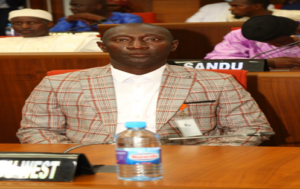
“I will strongly support the bill. Such a law will reduce the rate of labelling people on issues without evidence. Labelling people on issues that are not realistic and evidence-based needs to stop,” the lawmaker emphasized.
The prosecution of perpetrators, addressing challenges of victims and criminalizing labelling people as witches and wizards through legislation are crucial in addressing such human right violation and deterring impunity.
Despite government’s acceptance of the TRRC recommendations, the victims are without compensation nor is the government implementing the proposed reforms, however, not all hopes are lost with the presence of National Assembly Members like Honorable Gibbie Mballow and others who vowed to support the bill seeking to criminalize labelling people as witches or wizards.




